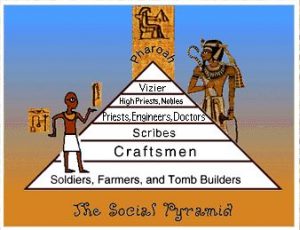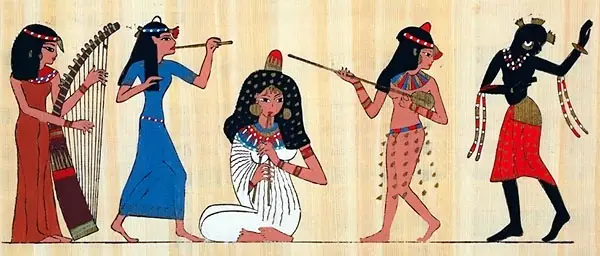Life in ancient Egypt was an extremely difficult one given the fact that there were no mechanical tools or machines which reduced human efforts like what we have today. In Egypt Jobs fact, for spending some leisure time also they had to put in physical efforts like in case of swimming or rowing etc.

There were selected handful occupations which were practiced in ancient Egypt like that of a farmer, soldier, priest, craftsman, nobleman, and lastly the pharaoh who was a common man. Apart from this, from the tombs, it is amply clear that women also worked for which they were paid though mostly such work was to be performed indoor. Some of the Egypt Jobs performed by the women were – hairdressing, grinding girl, priestess, treasurer, steward, weaver, dancer, musician, prostitute, supervisor of the Cloth, Wig Workshop, Royal Harem as well as Dancers of the King etc to name a few.
Egypt Jobs for Woman
However, for a normal woman, called as Nafrini, work mainly consisted of doing all the household chores like making breakfast, going to the market, cleaning the house, bringing up the children ending with preparing dinner. Though she is not that well off, yet she can afford to hire a servant, called Akana for providing her domestic help.

Egypt Jobs for farmer
Life of a farmer is primarily governed by the Sun as it is the position of the sun which makes him start or end his work. An ancient Egyptian farmer was called as Shenti. Shenti has a simple breakfast consisting of bread and fruits. Generally, the field on which he works (Egypt Jobs) is not that far away from his house. A part of the harvested crop has to be provided to the temple as a token of payment for the use of its land. All day long, Shenti is engaged in working on his crops, tending his cattle and ducks and once the sun sets, he stops his work for the day.
Egypt Jobs for soldier
An ancient Egyptian soldier was called as Mdjai. Breakfast consists only of a loaf of bread for a Mdjai. Following breakfast, Mdjai begins his drill practice on a plain outside Thebes. After being yelled at by his supervisors, a Mdjai along with his unit go on maneuvers, practicing charges and battle formations along with the rest of his division which consists of 5000 men.
The entire division is on the plain in the battle formation of centers and wings. Right from the Mdjai and the other elite archers, the spearmen and the chariots all are actively involved. Though tiring yet it is enjoyable. If Egypt is not involved in any war then, post lunch, his company which consists of 200 men is deployed on some government project work.
Egypt Jobs for priest
Itennu was a middle-ranking priest at the great temple to Amen-Re. With the first appearance of the sun, every priest chants the dawn hymn, “Awake in peace, great god.” The senior most priest breaks open the sanctuary and say the ritual prayer four times over the image of the Almighty.
This prayer gives the god his soul so that he can take his physical earthly shape again. The image is then carefully cleaned and rubbed with oil. Incense is burned as its old clothes are removed and the image is re-dressed in white, red, blue and green linen. The dressing is completed with perfume, makeup, and jewels.
After dressing up the God, the God is given breakfast consisting of bread, roast meat, fruit and vegetables. Beer and wine are also laid out. Once the priests think the god has eaten all he can, the food is removed. It goes back to the kitchens, and the remaining is distributed it to the temple staff as part of their wages. In the afternoon, an Itennu takes a small nap since chanting was considered to be a tiresome work! Apart from this, an Itennu also performs funerals. Sunset is an indication to put an end to a long day of hard work.